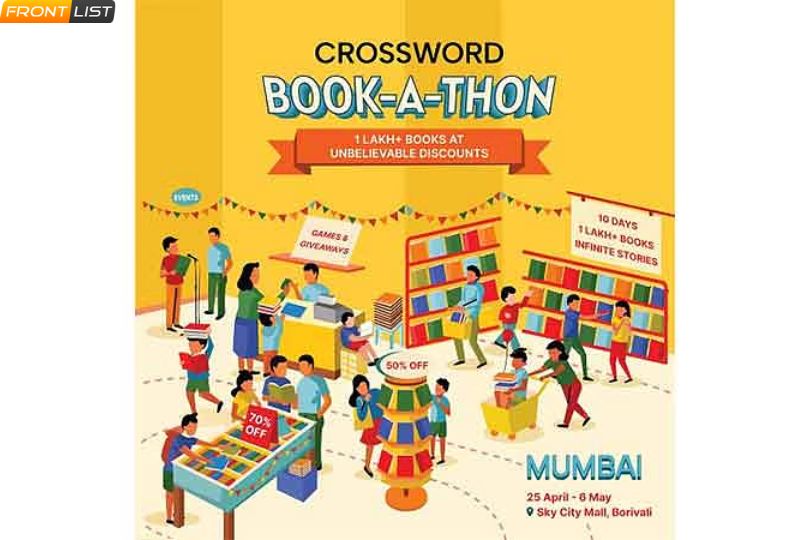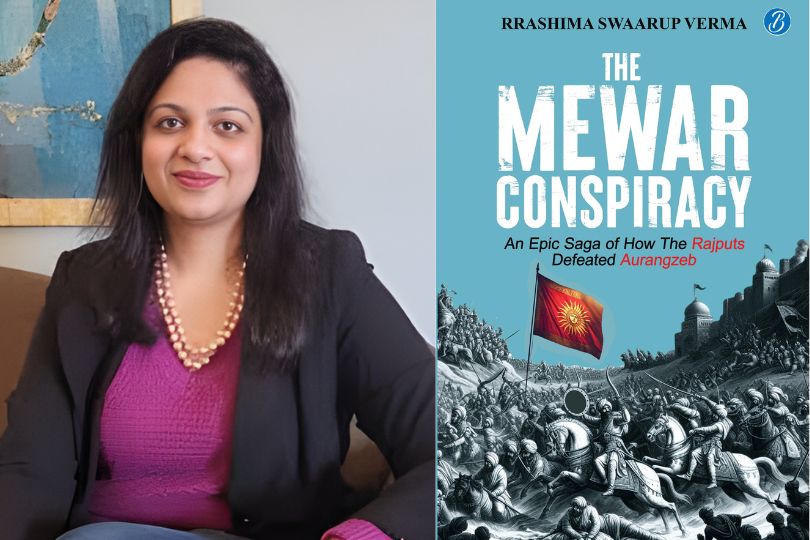Author Denied to Remove Reference of Racism from Her Book
Tokuda-Hall was first disappointed and then indignant after reading the offer's specifics. Her author's note, in which she directly addresses readers, had references to racism in Americaon May 08, 2023
.jpg)
Maggie Tokuda-Hall's most intimate work was the account of how her grandparents met and fell in love while interned as Japanese Americans in an Idaho camp during World War II.
The target audience for the book, titled "Love in the Library," is children aged six to nine. It was released by a small children's publisher, Candlewick Press, last year and received excellent reviews, but sales were average. Tokuda-Hall was thus overjoyed to learn last month that Scholastic, a publishing behemoth that supplies books and materials to 90% of schools, wished to license her work for use in classrooms.
Tokuda-Hall was first disappointed and then indignant after reading the offer's specifics. Her author's note, in which she directly addresses readers, had references to racism in America, and Scholastic requested that she remove them. Tokuda-Hall said the decision was difficult, but she rejected Scholastic and went public, outlining her situation in a blog post and a tweet that received more than five million views.
Authors of children's books were outraged by Tokuda-Hall's findings, and the world's leading children's publisher's editorial process came under close examination.
Tokuda-Hall remarked, "We all see what's occurring with this expanding culture of book bans. "There's no way you as a marginalized author can find an audience if we all know that the biggest children's publisher in the country, the one with the most access to schools, is capitulating behind closed doors and asking authors to change their works to accommodate those kinds of demands."
Scholastic immediately contained the repercussions. It promised to republish the book with the original author's message and expressed regret to Tokuda-Hall and the artist Yas Imamura. Tokuda-Hall declined them, claiming that she remained unconvinced despite the firm's efforts.
While they analyze what went wrong, the firm also postponed creating the collection that would have contained "Love in the Library," which was anticipated to include roughly 150 books by or about Asian Americans, Native Hawaiians, and Pacific Islanders.
In Tokuda-Hall's book, Scholastic's suggested revisions included removing a phrase describing her grandparents' suffering as part of "the deeply American tradition of racism." The business also requested the deletion of a line in which Tokuda-Hall depicts a society that "allows the police to murder Black people" and "keeps children in cages on our border," linking hatred against Japanese Americans to present-day and historical examples of racism.
Candlewick explained Scholastic's request and the company's worry that schools would be hesitant to purchase a book with such a straightforward statement about racism at this "especially politically sensitive" time in an email to Tokuda-Hall shared with The Times. Some users have complained on Amazon and Goodreads that Tokuda-Hall's message is inappropriate for her young readership since it is too political.
Several writers and educators who had been hired by Scholastic to advise on and curate the series that would have featured Tokuda-Hall's book denounced the company's conduct and called for an overhaul of the editing process shortly after Tokuda-Hall wrote about the event on April 12.
Sayantani DasGupta, one of the authors who provided advice on the collection, quit in opposition. They are "pre-emptively censoring the collection," DasGupta claimed. "We're going to publish diverse stories, but we're only going to publish them in the most palatable form."
Recently, debates have erupted about initiatives to remove references to racism from school texts. After changing an elementary school textbook so that Rosa Parks's tale didn't include segregation or race, one textbook publisher, Studies Weekly, came under fire.
But many people were startled to see that such modifications were needed from a reputable commercial publisher like Scholastic.
More than 650 librarians and educators, who account for a sizable portion of Scholastic's clientele, petitioned the publisher to distribute the book in its original form and "take public responsibility for the decision to censor a book."
The petition's organizer, Jillian Heise, an elementary school librarian in Wisconsin, claimed that young children, many of whom see prejudice regularly, might have a difficult time understanding the original author's remark.
"Kids are capable of understanding at a simple level that when we treat people differently because of who they are, how they identify, or what they look like, that's not fair," she claimed. She said the talk "helps their self-perception and perception of the world to develop with empathy."
Scholastic's C.E.O., Peter Warwick, stated in an interview on Thursday that the business will assess "all aspects of our curatorial approach."
The fact that this occurrence occurred in the context of Scholastic's substantial publishing of different perspectives and stories, according to Warwick, is extremely upsetting to all of us.
Following Tokuda-Hall's objection, the business opted to postpone the complete collection within 24 hours, according to Warwick. To look into the curation and editing of the collection, it has hired two independent specialists. The assessment will include not only the series that featured "Love in the Library" but also the full "Rising Voices" initiative, which also features other collections like "Elevating Latino Stories" and "Celebrating Girls of Colour."
According to Warwick, the study will look at if and how other publications were changed to exclude potentially divisive topics.
Another author whose book would be included in the same series as "Love in the Library" said that editing was done to change the wording of a sentence and exclude a concept that some readers would find politically sensitive. In an email to the author's publisher, Scholastic stated why it wanted the adjustment made. The author said because of its worries about the political atmosphere that is fueling classroom censorship.
Due to an ongoing connection with Scholastic, the author requested to remain anonymous and to have any identifying information about the edit withheld.
In schools, where it normally sells more than 100 million books to 35 million kids a year through its fairs, Scholastic is attempting to preserve its presence.
In recent years, as have other publishers, Scholastic has worked to broaden the variety of its authors and titles. It has released ground-breaking works with L.G.B.T.Q. Characters that address difficult topics related to race, gender, sexuality, and cultural identity. One of its best-selling works is the graphic book series "Heartstopper," about a relationship between two high school boys.
In addition, Scholastic distributes and licenses books from other publishers for its educational initiatives, such as its clubs, fairs, and education division. According to two publishing executives at rival businesses who have firsthand knowledge of Scholastic's licensing policies, it is not rare for Scholastic to ask for revisions to a work that has already been published.
A publishing executive who spoke to The Times said the requested adjustments often entail eliminating vulgar language or violent scenes. An executive at another children's publisher that often licenses novels to Scholastic said that Scholastic had requested adjustments on several occasions to less politically sensitive or potentially divisive themes. Both executives discussed editorial procedures, which are generally private, under the condition of anonymity.
It's unclear how the current incident will affect Scholastic's editing procedures. Some writers whose works were chosen for the same anthology as "Love in the Library" are attentively observing Scholastic's upcoming actions.
According to Katrina Moore, whose book "Teeny Houdini: The Disappearing Act" was scheduled to be included, "This is a collection of stories that needs a wider audience." "I would sincerely like to continue participating in the collection, but I need to be satisfied with how things are going. I'm keeping an eye on things, but I am optimistic.



.jpg)






.jpg)


.jpg)

.jpg)

.jpg)










Sorry! No comment found for this post.